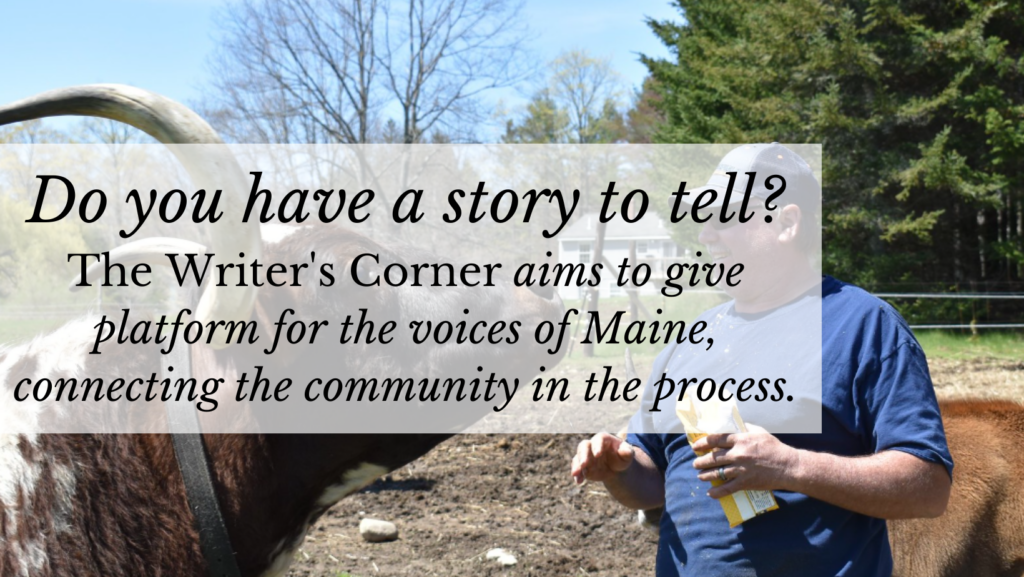
AgingME loves exhibiting perspectives from our local community. Check out stories from older adults depicting their personal experiences with Maine, their aging bodies, and more! To submit your own story, click here!
1st Annual Aging & Intergenerational Relationship Writing Contest
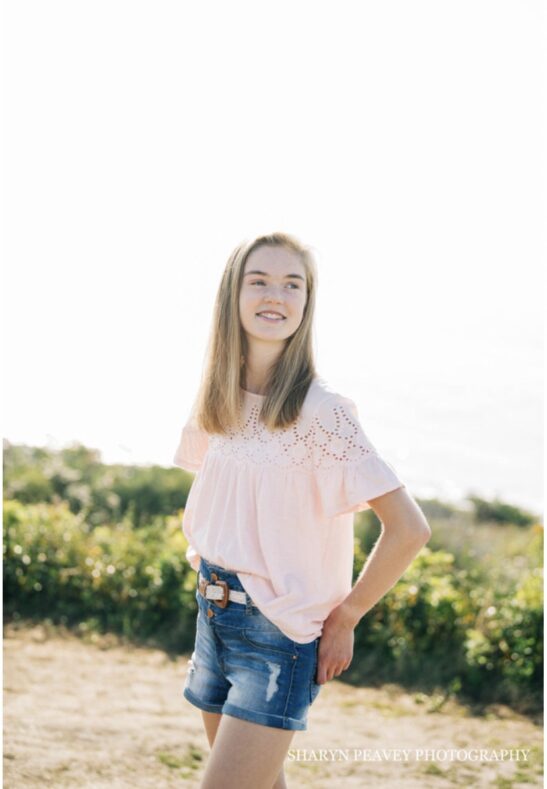
1st Place – Lila Gaudrault
UNE Nursing
I have grown accustomed to hearing stories told in fragments. A hint of a memory or a hazy gleam of the past; a sliver of something once complete. It is, I think, perhaps the most cruel theft of dementia, this losing of the stories and memories that make us who we are. Yet I have learned that even when someone can no longer recall their past, the fact that they lived it is enough. The good that one does, the lives they touch while going about their own, and values they impart upon others encompass the legacy that endures even when the mind fails.
The first person I saw taken away by Alzheimer’s disease was my grandmother. I was eleven, old enough to recognize that something was very wrong when Grammy repeated the same stories again and again or forgot my name, but too young to understand exactly what was happening. As I got older and her disease progressed, I still found it difficult to comprehend how tangles or proteins in the brain could rob a person of so much. How they could reduce my grandmother, a woman who had established nursing care in some of the most impoverished regions of the globe and raised six children and never left the house without her hair just so, to a shell of everything she once was, unable to care for herself. Grammy died in 2020, and I began nursing school a year later, determined to learn what I could about the disease that took her and work with others impacted by it.
Today, I have worked in memory care for nearly two years, splitting my time between an assisted living facility, day program, and hospice, where I volunteer one-on-one with patients. In these roles, I see people at all stages of Alzheimer’s disease and dementia. There are the ones who are just beginning to become more forgetful, who might neglect to turn off the stove or have trouble keeping track of a schedule. They come to our day program, which we will call a senior community center rather than a daycare, and will be referred to as members rather than patients. Many at the program are aware of and often frustrated by their cognitive decline, but they are able to connect with others facing the same challenges (“my memory is not what it used to be,” I will hear again and again, followed by a chorus of “mm-hmms” and “me too’s”) and live at their own pace. They participate in discussion groups, sing-alongs, exercise classes, and birdwatching. They smile and laugh a lot, and when they can’t remember the right word or trail off mid-story, we acknowledge what they can contribute and celebrate them for who they are right now.
Then there are the ones who can no longer live at home safely. They wander, become easily agitated or need round-the-clock supervision and assistance. These are the patients who come to live at a facility. By now, many of them exist in different realities. They are late for work or need to pick up the car; they are looking for their mother or I am their mother. It is a difficult stage to navigate–taking an already confused and overwhelmed individual out of a familiar setting is rarely smooth–but we try our best to provide a safe and comforting atmosphere.
Finally, there are the hospice patients. With a prognosis of six months or less to live, these patients are mostly bedbound. Not all of them have dementia, but those that do are very quiet. They sleep much of the time, and my visits mostly include sitting at the bedside and playing soft music. I’m never quite sure if they’re aware of my presence, but my supervisor has assured me that any small human connection can make a difference. I learn about these patients by the photos on their dressers, the postcards on their walls, the family members who are often present. Hospice care is beautiful and dignified, and we strive to provide comfort and peace as a patient nears their final days.
In all of these settings, I have had the privilege of learning dozens of stories and hearing countless words of wisdom. One small blessing with dementia is that, while patients are usually unable to recall short-term events or have difficulty making new memories (hence why assisted living residents become repeatedly confused about where they are), their long-term memory remains remarkably intact. The same woman who can’t tell me the year lights up when I point to an old photo of her family. The man who insists he’s late for work provides a lesson on 1960s music hits that would rival a historian’s. The former hairdresser who can no longer care for herself still brushes my hair with the expertise of someone who owned her own salon for 20 years. Good stories can be told in untraditional ways, I’ve found. Values can be passed down without a formal lesson. We can learn so much about a person’s life by the little things—the sudden gleam in their eye when I turn on the Beatles or the squeeze of my hand after I’ve helped them put on their favorite pair of slippers or the way their room is overflowing with pictures of their grandchildren. These stories may be fragmented or leave questions unanswered, but their value remains intact. After all, when another person invites us deeper into their life, we have truly been given a gift.
One woman I work with is a former nurse. She is unable to tell me anything about her present life—the facility she lives at, the sing-along she attended this morning, or the name of her roommate. Yet we have long conversations about her career and the lessons she learned from it. Working overseas in Europe for many years, she tells me in a no-nonsense way about the long hours, the hectic night shifts, and the difficult examinations. “What did you do in your free time?” I’ll ask, “did you get to explore the country?” She will shake her head, “I studied,” she’ll respond, “you had to study hard for those tests. But I loved it all.” She’ll light up when I show her pictures of the country where she worked, and remind me sternly to keep studying hard.
My grandmother was also a nurse. Her career began as a Peace Corps volunteer in Tunisia, where she found a passion for serving the most impoverished areas of the world. She later started a nonprofit, Intercultural Nursing, to give other nurses opportunities to practice overseas, mostly Haiti and the Dominican Republic. During these two dozen trips, she spent time at Mother Teresa’s Home for the Sick and Dying. Her rosary beads from Mother Teresa were her most prized possession.
Grammy’s life was filled with meaningful stories and lessons, yet she rarely spoke about them, at least to me. Or perhaps I just didn’t listen. It fills me with grief today that I learned more about my grandmother at her funeral, where colleagues and former patients spoke about her impact, than in the 17 years I knew her for. I missed out on hearing Grammy’s stories while she was living, but I am determined to continue learning about her incredible life and carry on her nursing legacy.
Learning a person’s stories and the values that have carried them through life is always meaningful. Yet the stories left untold, or those told in fragments, are not wasted. I may have never known about my grandmother’s impact until after her passing, but the things she did throughout her life still, of course, had immense meaning, reaching across the sea and beyond. My relationship with my grandmother–or lack thereof–has been a motivator for me to always strive to learn the stories of the elders around me and treat each one, no matter how it is told, as the gift it is, a window into a life lived imperfectly but fully.
Lila has given permission for us to post her photo and story. Congratulations!
1st Place – David Harvey
UNE College of Osteopathic Medicine
“Memory Lane”
This is my third week doin’ this. My doctor says it’ll help keep my mind sharp but I ain’t improved yet. The Missus has been on me ‘bout keepin’ up, so here I am.
Just another Tuesday here in Milford. We got pounded with snow this weekend so, you know me, I was up late tendin’ to the house. Damn, I swear that roof’ll cave in one of these days the way the snows’ makin’ her lean and creak. The old wood beams my father put in still hold strong; she doesn’t have much give left though.
Same story for this storm – tarp the back windows, place the buckets in the attic, lock the mud basement, and make sure the chairs are next to the wood stove for the Missus. Don’t want the kitchen ceiling drippin’ again. Oh, Dave Jr. picked the grandbabies up on Sunday, I still don’t know how he’s drivin’ in this – I always try to warn him.
I was finally able to get back to dancin’ with the Missus in Toddsville last Thursday. God knows my knees haven’t been right and I look worse than I already do out there makin’ a fool of myself, but damn, if you coulda seen the way her face lit up when I asked her to go, you’d swear she was twenty again.
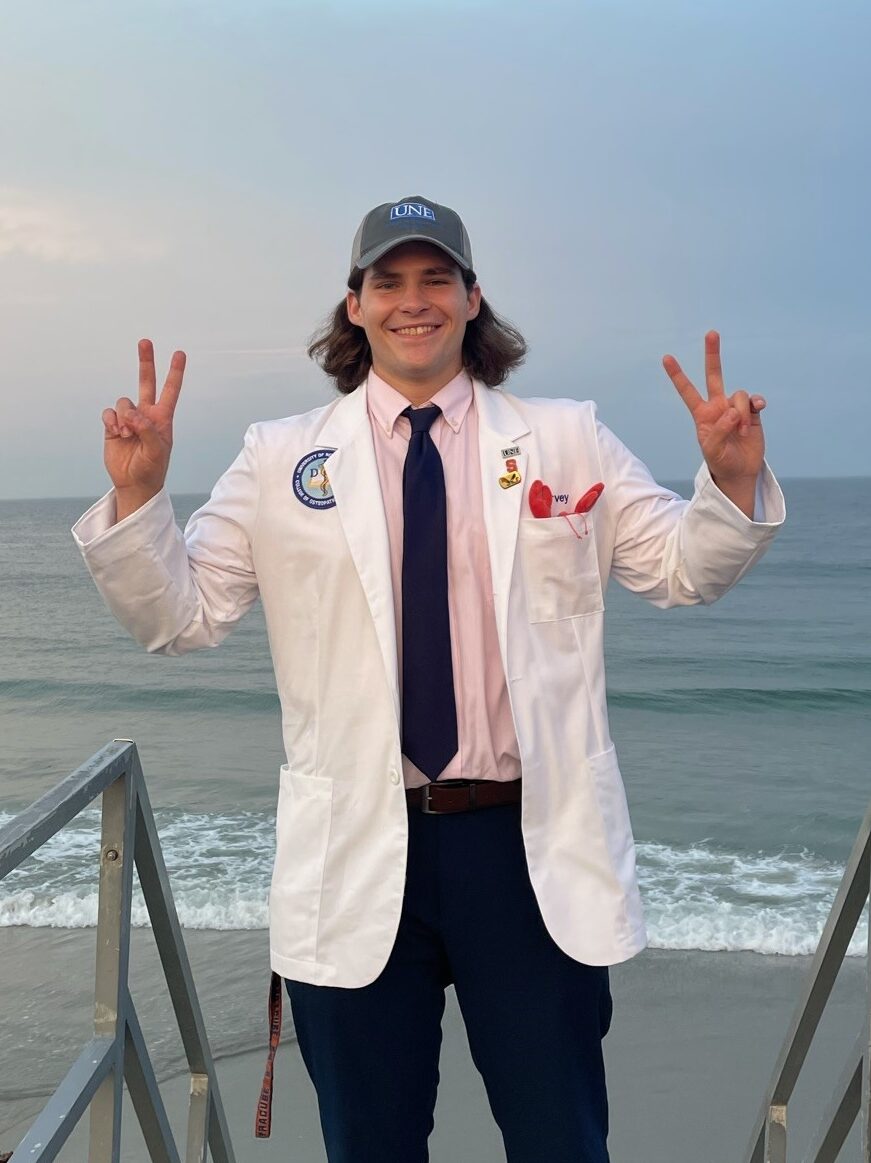
Alright, so, best thing of my week since my last entry.
I was finally able to get back to dancin’ with the Missus in Toddsville last Thursday. God knows my knees haven’t been right and I look worse than I already do out there makin’ a fool of myself, but damn, if you coulda seen the way her face lit up when I asked her to go, you’d swear she was twenty again.
Worst part of my week was this weekend once the grandbabies left. I had to get up into that damn attic. My back can’t take the climbin’ and hunchin’ over in that space, and Lord help me if the Missus wants me cleanin’ up there more. I mean, I was placin’ buckets and knocked over some boxes of old photos and didn’t hear the end of it.
The photos were actually quite wonderful – got me thinkin’ about everythin’ cleanin’ them up. Man, I used to be able to put pen to paper with a simple picture of a person. Now, I look at empty faces of which I don’t even remember half the time.
I did remember that damn pickup truck though – hard to miss that one even in a dusty old photo. It was my father in front of it once he painted her over blue. My father loved the ugly thing, I swear more than Ma. She was always wantin’ him to get rid of it cause the foul smell of oil in the garage and awful screechin’ belts in the motor scared the damn dogs. She never did take to it like the rest of us did. Our thinkin’ was he wanted to hold onto it until he could give it to me or my brothers.
So, I need to end with my list of ‘remember’ statements, and I thought oh hell, I’ll do it about the truck. I know my father will get a kick out of it when I’m able to tell him.
I remember watchin’ my father bring her up our driveway for the first time. It was hot, me and Chris were there outside by the creek, and I swear it sounded like a dyin’ hog was under the hood. Ma wasn’t happy.
I remember drivin’ it for the first time on my father’s lap. Chris and Tom had taken her around the yard already. My father was on the gas and I was behind the wheel. I still remember him deafenin’ my ear yellin,’ “watch out for the damn trees!” My slick self replied, “they’re in my way!”
I remember comin’ home from school in the truck when my father saw somethin’ down in the ravine. The old pup looked weak, but he loaded her up into the truck bed and we brought her home. Coddy spent 7 great years with us. She was loud as a sin and scared off Ma’s birds every mornin’ but she was adventurous and so very lovely.
I remember sittin’ in the distorted back seats with my brothers’ wondering what smelled so bad – turns out my father had flooded the engine or somethin’. He attempted to teach us how to fix it but all I did was ruin my favorite shirt with stains. Ma never could get them out. I remember takin’ her out on the 4th of July after beggin’ my father for the keys. I had done the gutters and the lawns before he handed them over. My old bud Jack and I went and did burnouts on the gravel near the baseball field tryin’ to impress some girls – I swear we almost lost a tire. We all spent the night in the truck bed watchin’ the fireworks.
I remember my first kiss in that car. My hands were so sweaty on the wheel starin’ out the windshield at her father on the porch. I leaned over and got caught on the seatbelt but landed the kiss – still makes me shiver how embarrassin’ that must’ve been. Poor Mary moved away that next summer and I never did hear from her again.
I remember the night Ma told me my father had rolled the truck off the road in a snowstorm, God rest his soul. I can still see her cryin’ and my brothers’ and I sittin’ in the parlor not really understandin’ why. The wreck took out the Johnson’s front shed but they were able to salvage the three hubcaps she had. One got buried with my father that spring and the other two still sit above his workbench out in the garage.
I sure as hell don’t miss that damn eyesore – I promise that. I just miss what it was. Who it brought with it. The way the photo helped me travel back. That truck was both a giver and a taker. It gave me lastin’ memories when I can’t even remember my birthday. Yet, what it took still stings, even now. Bittersweet – that’s what Ma used to say.
I don’t know, I’m gettin’ sentimental again tryin’ to write like I do in those little cards for the Missus. The doctor said any type of writin’ is therapeutic, so I reckon he won’t complain.
Honestly, thank God she never had to meet that stupid truck – chances are she wouldn’t have stuck around long.
David has given permission for us to share his picture and story. Congratulations!
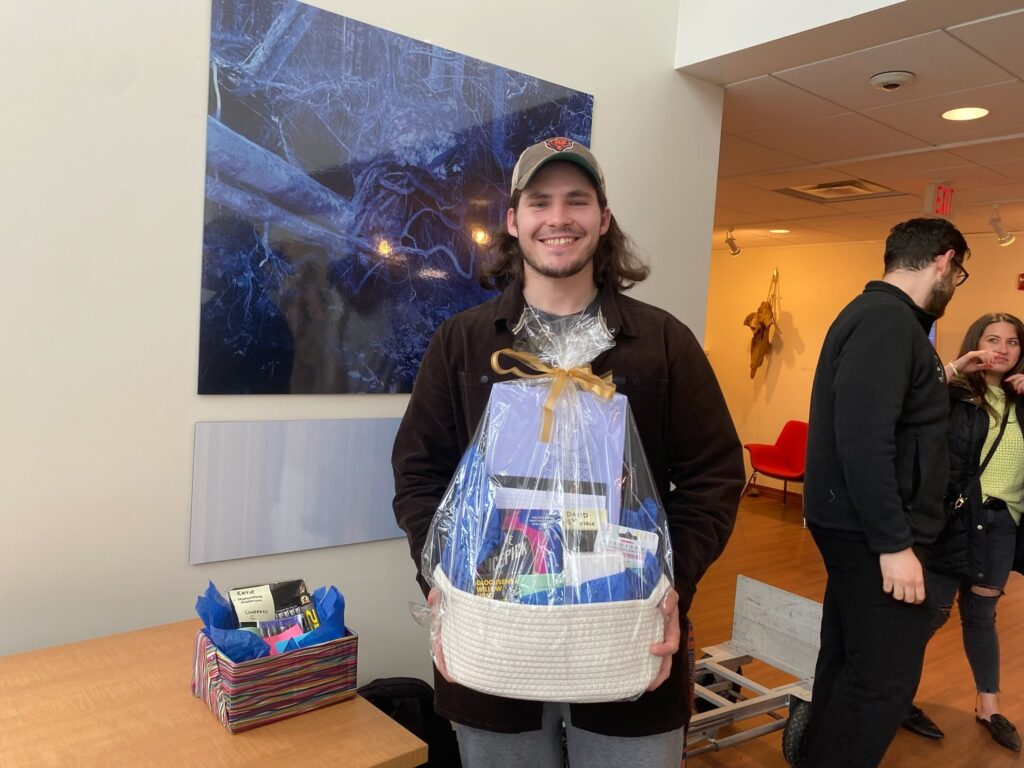
2nd Place – Bronte Wise
UNE Marine Biology
“Old Memories”
“Come on Grandma, we’ve got to get going!” I hear my granddaughter shout as I am frozen in place. I am moving out of my home today. I can no longer live by myself. I don’t want to go. I’ve always been afraid of those nursing homes; the final resting place for someone my age.
“Oh! I almost forgot,” I proclaimed trying to stall for more time in this home, “there’s still some of my things in the attic. Would you go get them for me dear?”
“Alright, but after that we’ve got to get the last of these boxes into the moving van.”
Sarah dutifully climbs up into the dusty attic to retrieve the box that I had stored up there so long ago. When she returns, I hardly recognize the box anymore. As she brings the box closer, I can see a name scribbled on the side of it: Elise. I suddenly remembered why I had put that box up there in the first place. I feel fear knowing what memories lie inside, but my urge to regain them pushes me to look inside the box. I took the box from Sarah and headed towards the couch. “Come on, Grandma. I told you we must get going. Now’s not the time to rummage through some old box.”
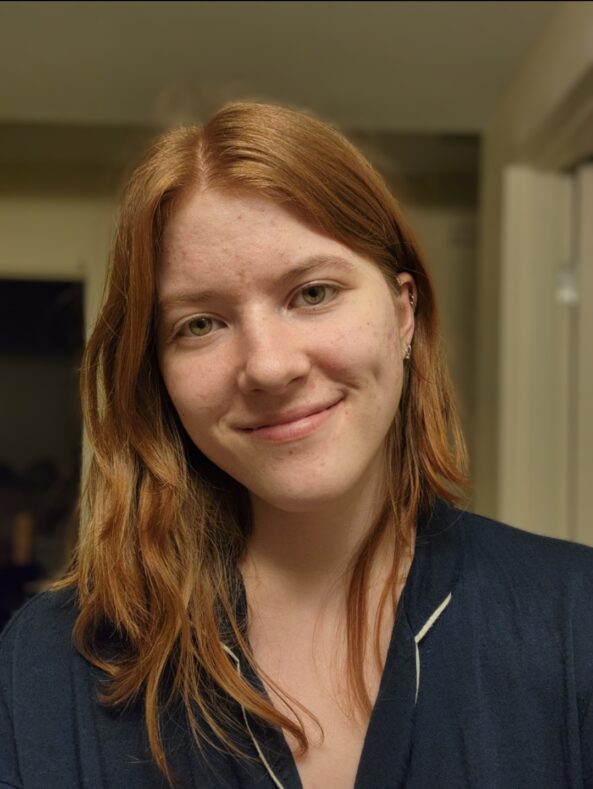
“Oh, won’t you just entertain an old woman for a second? I want to show you something.” I motion for Sarah to sit down with me. Hesitantly, she walks over and plops down beside me.
“Okay, fine. What is it?” she grunts. I open the box and shuffle through all the letters until I find an old photograph of Elise and me. It’s battered around the edges, but we can still clearly make out the picture. I am resting my head on Elise’s shoulder while she rests her head on top of mine. We are wearing our old high school uniforms. Elise took the picture herself by turning around her old Polaroid camera and attempting to get both of us in the frame. As I think of all the struggle it took for us to capture this photo, I am transported back to that day.
——————————————————————————————————–
Elise and I are laughing at how ridiculous our pictures are turning out. We could not get a good picture no matter how we held the camera. Elise and I have been friends for as long as I can remember. We’ve had our ups and downs, but we’ve always made up just to become closer than before. I cannot imagine my life without her. Finally, we got a good picture. I couldn’t help but admire the beauty of it.
“What’s up?” Elise asked. I hadn’t realized it, but I had started to stare off into space, becoming lost in the reflection of Elise’s eyes.
“Nothing,” I say, “just remembering how lucky I am to have you.” Elise punches me on the shoulder and laughs.
“Okay weirdo,” She chuckles. Elise was never good at expressing her emotions, but I knew this meant that she felt the same way.
“No, seriously, I mean it. I mean just think about it. You and I have been friends for such a long time and through all the shit we’ve been through, we still are. I guess I’ve just been thinking about us a lot lately and how special you are to me.”
“I know, it’s crazy how long we’ve known each other, but why are you thinking of this now?”
“I don’t know, I guess with graduation coming soon and not knowing if we’ll be able to be together like this again, I’ve just been thinking more about us. I really, really like you Elise and I don’t know but I just don’t want to lose you, you know?” At that moment, Elise grabbed my hand. She took a deep breath, and then all of the sudden, she kissed me. Time froze and it was just us. It was magical. When we stopped, we sat there staring at each other, speechless. I looked into her eyes knowing that I loved her with all my heart, but how could I say that to her? Every atom inside of me was screaming to kiss her back or say something, but I couldn’t I just sat there stunned.
It was then that my mom walked in. She saw us on the floor which was now scattered with over twenty Polaroid pictures of us laughing and cuddling. Elise immediately stood up and said that she had to go. I tried to gather some pictures for her, but she wouldn’t take them. My mom just stood there with disapproving eyes. I could tell she didn’t like how much time we were spending together. I shouldn’t care about her opinion, I should run after Elise, kiss her, and spend the rest of my life loving her, but I didn’t, and I won’t.
The next few weeks Elise stopped talking to me and I stopped talking to her. I want more than anything to be with her, but I can’t. Then one day I didn’t see her at school. When I got home that day my mom and dad were waiting for me. They immediately embraced me in the tightest hug they had ever given me. It was then I knew that Elise was gone. I couldn’t help but feel I could have helped her. I could have stopped her. If I had just been there for her. If I had just been with her. But it was too late, Elise was gone for good. I soon graduated high school, went off to college, got a boyfriend, and left Elise behind. I tried to forget all the love I held for her, and eventually, I did. All the memories of her stored in that box in my attic.
——————————————————————————————————–
“She was my first love,” I told my granddaughter, “but I had to let her go. You know it wasn’t as acceptable back then as it is now. I think that’s why she had to leave this world although I wish she stayed.”
“I’m sorry Grandma, I don’t even know what to say. I can’t imagine losing someone like that. I can’t believe you’ve been carrying this with you all this time.” I could see the sadness in Sarah’s eyes. I felt a drop of water hit my hand and I realized I had been crying.
“I still miss her,” I said through soft tears, “but I realize now that I shouldn’t have hidden her memories away like I did. Soon after she left us, I met your grandfather and I had to move on. It was what I thought I needed to do. But I shouldn’t have hidden her away like that. She deserved more. But it wasn’t all bad, I ended up getting you and your mother out of it whom I love more than anything. I just wonder sometimes how different my life would be if I had just told her that I loved her too.” Sarah hugged me then and I could feel that she needed this story just as much as I did.
“Well,” I continued, “I guess we should load this into the truck and go. I think I’m ready now. I’ve gotten all I needed out of this place. The life I lived here was full of happiness even if it wasn’t with Elise.”
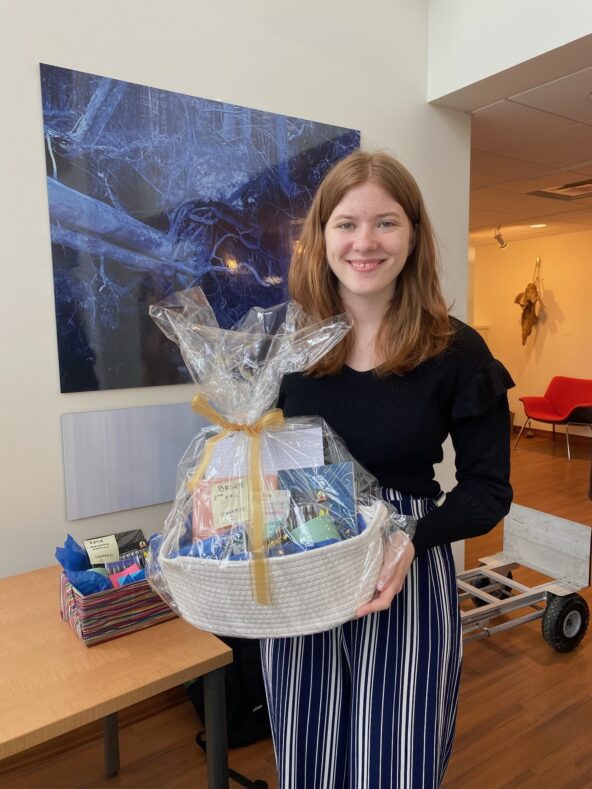
“I’m sure Elise would be happy with all you’ve done with your life.” Sarah looked me in the eyes and squeezed my hands. “Let’s load this box into the truck so you can continue to remember her from now on.” We sat in the truck in peaceful silence until we arrived at the nursing home. The place that I was so afraid to go to an hour ago was suddenly less scary. I realized that this was a part of my journey, and I must embrace it to be happy with it. Soon, I was in my new room fully unpacked. Sarah hugged me again and wished me well before leaving. Even though I was the only one left in my room, I knew I would never truly be alone again for on the mantle beside the picture of my late husband, was Elise. These people whom I had loved my whole life are here to watch over and protect me as I start my new life away from my home. Even though everything around me is new, the love I hold in my heart is old and true. This will never fade.
Bronte has given us permission to post her photo and story. Congratulations!
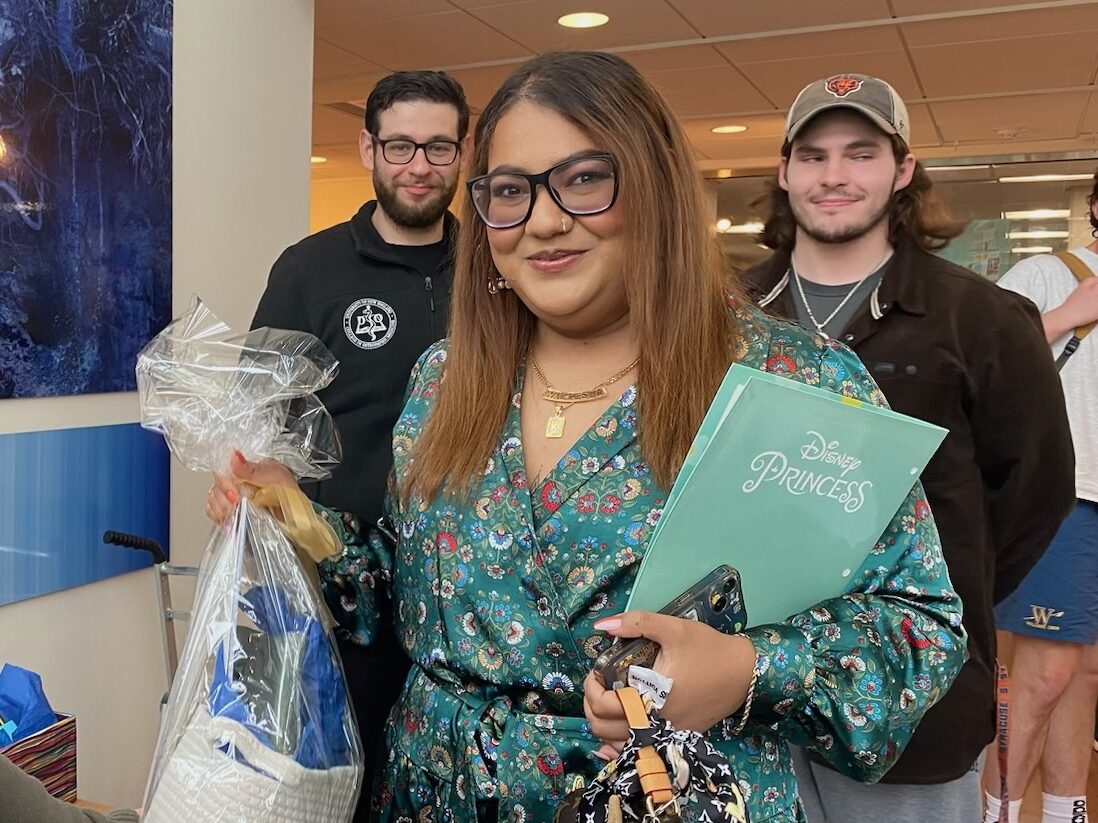
2nd Place – Naliesha Karpe
UNE College of Osteopathic Medicine
“Steal in The Attic” – A play in 3 acts
Setting: The play alternates between the late 1980s in Queens, NYC, in the vibrant neighborhood of Richmond Hill, known for its bustling West Indian community, and the present day, in quieter, more reflective settings that mirror the characters’ current lives.
Characters:
Kartick – A Guyanese immigrant who was 29 years old when he moved to Queens, NYC, in 1987. Bright, hopeful, and carrying the vibrant spirit of his homeland.
Luna – An American woman, artistic, open-minded, and curious about the world around her.
Alyssa – Kartick and Luna’s daughter, who grows from a child into a young adult throughout the play. She embodies the emotional bridge between her parents.
Sherry – Kartick’s wife in his later life, a background character who influences Kartick’s family dynamics but remains somewhat peripheral.
Kelly – Luna’s sister. Her role, though minor, is crucial.
Act 1
Scene 1: Kartick’s Attic, Present Day
(Curtains drawn. Dim lights should convey false intimacy. Portray is an attic. There are several faulty windows, frosted in dust. A twin-size bed stands center stage. Two full bookshelves sit upon a large Indian-inspired rug. There are several plants lined up against the wall, fully decayed. An early 90s-inspired TV sits upon a table, more for decor than function. On both sides of the bed are end tables; on them are several photos. The frames show signs of abuse, all wearing cracks with the same muted colors, bearing the relentless march of time and the scars of history. Kartick enters stage right. At 66 years old, his broad appearance is striking, even handsome. He stands numb, gulping the stale air as memories cut through, drowning him with their pain. Pain he still wore, along with regret dripping in his sweat. The attic feels like a sauna as he limps over; he hesitates for a moment before reaching out and picking up a single photograph. The photo is old, its edges frayed, capturing a moment long gone. In it, a younger Kartick stands next to a woman, her face radiant with happiness, while he appears distant. In this captured instant, the background is blurred, highlighting her figure and the subtle swell of her abdomen, indicating her pregnancy.)
(His gaze shifts back to the woman, her smile frozen in time. He closes his eyes briefly, tears escaping down his cheek.)
KARTICK
(whispering as if speaking directly to the woman in the photo) I’m sorry.
(He places the photo gently on the table, his hands lingering on it as if trying to hold on to the moment a little longer.)
(Curtains close smoothly, hinting at a transition to a flashback in Scene II.)
Scene 2: RichmondHill, 1987
(The stage explodes with the colors and sounds of a Caribbean festival. People dance in vibrant clothes, street vendors sell exotic foods, and the air is alive with music. A young Kartick walks through the crowd, absorbing every sight and sound with a broad smile. Luna, camera in hand, notices him.)
Luna: Hey, I haven’t seen you here before. First festival?
Kartick: Yes, I just arrived from Guyana. It’s beautiful, like a piece of home.
Luna (smiling): I’m Luna. And yeah, Queens is good at making everyone feel a bit at home.
(The atmosphere of the festival is electric. Luna notices Kartick looking at a food vendor, where a large pot simmers.)
Kartick (timidly): Want to try some pholourie? They’re fried dough balls. My mother makes these back home in Guyana. She sells them in her small shop by the market. You wouldn’t believe the lines on a Saturday morning.
(They watch as the vendor scoops a handful of dough and drops it into hot oil, where it sizzles and turns golden brown.)
(Luna takes a bite of the pholourie, her face lighting up with delight at the flavors.)
Luna: Wow, these are incredible! I can see why there’d be lines for these. They’re unlike anything I’ve tried before. The sauce is fantastic, too!
Kartick (pleased): I’m glad you like them. It feels good to share a piece of home, especially here, where everything is new.
(They continue to chat and eat, walking through the festival grounds. Luna points out various stalls and introduces Kartick to local treats, each sharing stories of their favorite childhood foods. As they walk, steel drums grow louder, pulling them towards a group of people dancing. The rhythm is infectious, and Kartick looks at Luna with a hesitant but hopeful expression.)
Kartick: Do you dance? Because it looks like a lot of fun. Luna (laughing): I’m no expert, but I never miss a chance to dance.
(They set their food aside and join the dancers. The music is lively, filled with the metallic ring of steel drums and the syncopated beat of soca. Although initially cautious, Luna is graceful, and Kartick soon finds the rhythm. They laugh as they attempt to keep up with the other dancers, the moment’s joy drawing them closer. As the song ends, they step aside, catching their breath and laughing at their own daring.)
Kartick: That was fantastic! Thanks for dancing with me. I haven’t felt this free in a long time.
Luna: You’re a pretty good dancer, Kartick.
Kartick (smiling broadly): You’re too kind. We should do this again. (Luna nods, still smiling from the dance.)
Luna: Definitely. Here, let me give you my number. Maybe you can show me more of your world, and I can introduce you to more of New York City.
(Kartick nods eagerly, and they exchange phone numbers.)
Kartick: I’d like that. There’s a lot I want to explore, and having a local guide seems like the perfect way to do it.
Luna: And I’m always up for learning about new cultures. It’s a deal then.
(They smile at each other, a sense of camaraderie and anticipation for future adventures settles between them. The festival continues around them, a blur of sounds and colors, but for a moment, it all fades into the background as they focus on the new connection they’ve just made. The lights dim slightly to signify the end of the scene, leaving the audience with the sense of a budding relationship set against the backdrop of cultural celebration and personal discovery.)
Scene 3: Kartick’s home, a year later
(The stage is set with a small dining table, two chairs, and subdued lighting, suggesting the intimacy and seriousness of the moment. Luna and Kartick sit across from each other, their dinner mostly untouched. Luna’s expression is uneasy as she gathers her courage to speak.)
Luna: Kartick, I need to tell you something… I’m pregnant.
(Kartick’s face registers a tumult of emotions—surprise, fear, and a fleeting moment of joy, which quickly dissolves into apprehension.)
Kartick: A baby… Luna, this… this is unexpected.
Luna: I know it’s not easy, but maybe it’s a new beginning for us?
(Kartick looks away, his hands clasped tightly together, as if holding himself together. His voice is heavy with unspoken worries.)
Kartick: Or an end… Luna, I’m not just here to start anew. There’s so much you don’t know. Back home, my family barely makes ends meet. My mother sells in the market, and my father is a freelance welder, but work is scarce. I came here to find a good job, to send money back, to pull them out of the slums.
(Luna reaches across the table, trying to offer comfort, but Kartick pulls back, his expression tormented.)
Kartick: And there’s more. In my culture, having a child out of wedlock… My parents would see it as a disgrace. They’d expect me to marry you. But Luna, I can’t afford a wedding, not with all the financial responsibilities I already carry.
(Luna’s face falls, her eyes filling with tears)
Luna: Kartick, I love you,can’t we find a way through this? Your family, they haven’t met me, they might understand…
Kartick (shaking his head): It’s not just about meeting you. It’s about honor, about expectations that were set long before I left Guyana. I need to support them, Luna. And now, how can I support a child, you, and them?
(Kartick stands, pacing a little as he speaks, his voice a mix of despair and frustration.)
Kartick: I love you, Luna. I do. And that’s why I can’t drag you into this chaos.I wanted to give you more than this.
(Luna stands too, reaching for him, her voice desperate but gentle.) Luna: Kartick, we’ll face this together. Isn’t that what love is?
(Kartick looks at her, love and pain etched across his face. He wants to believe her, to take that leap, but the chains of his responsibilities and cultural expectations hold him back.)
Kartick: I need to think, Luna. I need… space to figure out how we can possibly make this work.
(The scene closes with Kartick stepping away, leaving Luna alone at the table, her face a portrait of sorrow and resolve. The lights dim slowly.)
To read the rest of the play –>
Naliesha has given us permission to post her photo and story.
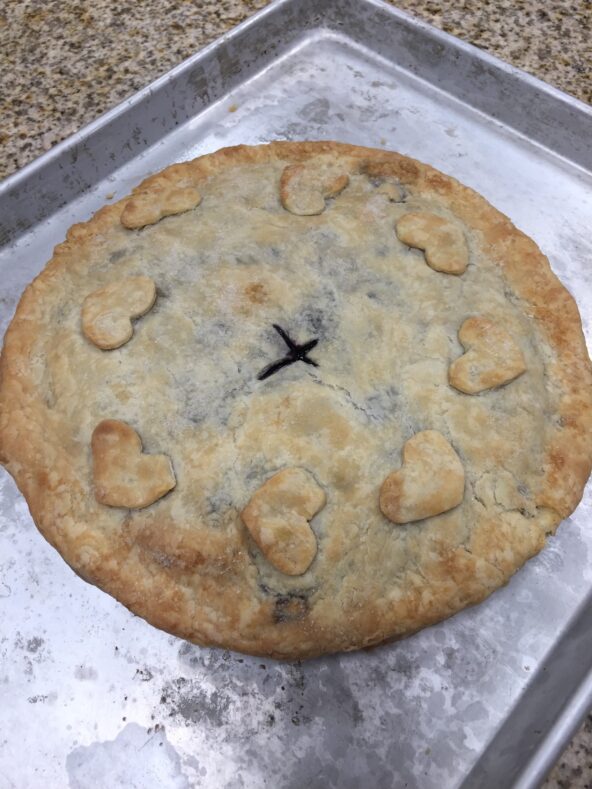
A Very Special Blueberry Pie
Traci Anello, The Community Gourmet
Our AgingME GWEP team recently participated in the 13th annual York County Elder Abuse Task Force Conference and had the good fortune to meet Traci Anello, Founder and Executive Director of The Community Gourmet. Our “Living Well With Dementia” message resonated with her and she shared this lovely story with us, which she has given us permission to post.
I started working at this facility when it first opened so I got to know each resident from the beginning. There was one gentleman in particular that I seemed to connect with. I’ll call him Jon. He was very tall and lanky. He also seemed grumpy all the time. I knew there was a story about him and he must have a lifetime of experiences.
Every day after lunch, I would clean the main kitchen and go out to the three individual resident kitchens and check to make sure everyone had eaten. If not, I would make a meal for when they woke up or were ready and put it in the refrigerator.
This one particular day I had gone out to check with the staff if everyone was all set. I told the staff that the next day I would be making homemade pies for dessert as I thought it would resonate with the residents. Jon was sitting at the breakfast bar. He would sit there everyday with his head hanging down and his arms crossed as if he was napping. He heard me talk about pies and this man who would not say two words picked his head up and said “I want to make a pie!”. I said, “Jon, you want to make a pie? Then we will make a pie together.”. Like a young child would say, he said,”Do you swear? Do you pinky swear?”. So I walked over to him and pinky swore.
I was so excited. I went into the director’s office to get his permission to make the pie with Jon. The director said it was okay but don’t be disappointed if he doesn’t remember. Well, I wasn’t thinking about that at all. I wanted to have everything prepped the next day so if he WAS ready, I would be too. I made the pie dough and rolled it out. I went home that night and I was so excited for this opportunity, I couldn’t sleep. I came in the next morning and looked for the apples. I always cook my pie fillings first and I wanted Jon’s to be ready to go. We had no apples. I looked everywhere and no apples. I was upset because I wanted everything to be ready. We did have frozen blueberries so I made blueberry filling instead. I tried to have this all ready to go as easy as I could for Jon.
When I came out to serve lunch, Jon wasn’t there. I was disappointed at the moment but I was grateful we had the conversation the day before. When I came out after cleanup, there he was sitting at the breakfast bar! Without missing a beat, he said, “Are we going to make that pie?!”. I ran into the main kitchen and grabbed my pie kit. I came out of the breakfast bar and sat everything down in front of him. He went right to it! He put the rolled out dough in the pan. I filled the pie and he stood up!! He crimped the pie and showed me how to put the little hearts I had cut out on the pie. He looked at me and asked, ‘How did you know blueberry was my favorite?’. I told him I was glad he liked blueberries. He then said this to me,”I make blueberry pies with my grandmother at the church.“. Not MADE but MAKE. I think he was in that younger mindset of when he made pies with his grandmother. He then said, “Where’s the sugar?! You have to sprinkle sugar on top!”. So I did and I rushed the pe into the main kitchen and placed it in the preheated oven. I knew time wasn’t on our side so I had the oven ready to go. Once the pie was baked, I brought it out to him. He was sitting there with a big smile. Not one of us could believe this was even happening. I cut the pie and served him a piece. We all had a piece. We were holding back the tears. This moment was magical in so many ways.
While we were eating the pie, his wife came in to visit. She couldn’t believe what she was seeing. She said,”Oh my God Jon. What’s happening?”. He said, “Sit down and have some pie!!”. She was crying. She asked if she could take him to his room to enjoy this moment of him being awake and talking. Of Course the CNAs helped bring him back to the room.
I went into the kitchen and the director told me he couldn’t believe what he just saw. None of us could. I walked into the storeroom alone and sat on the bags of flour. I cried. I was so happy. But I cried because I learned such a big lesson about people with dementia.
The next day when I saw Jon, he was sitting in his chair with his head hanging down and his arms crossed like he was napping. I tried to talk to him but there was no response. He passed away two months later.
From that very day with Jon making pies, I always listened to what the residents had to say. I talked about food with many of them. I have old recipes that they have shared. I would make those recipes for the other residents to enjoy.
I wrote a book about my experiences with people with food. It’s not published yet. Right now it’s called “The Power in Food”. The “i” is dotted with a crooked heart. The pie I made with Jon had a crooked heart on it and I thought that heart was very symbolic.There are so many stories to share. I have included a picture of the pie for you to see. I have a video of photos of us making the pie I’d love to share with you.
This experience was life changing. I’d like to teach more people about the power in food and how it relates to dementia.
Dr. Wehry, this is one of the reasons I started making Care Packages. Inside are proteins and small meals. I try to add Fig Newtons, Lorna Doones and Vanilla wafers so that it just might bring someone back to their childhood. The Community Gourmet is my way of connecting with seniors. I want to reach as many as we can to make sure there’s always food available for them but also to let them know we care.
You can learn more about Traci and her work at www.thecommunitygourmet.org
Sharon Shane, 81 years old of Maine takes back control of her health
Last year, Sharon Shane finished three 5Ks, her fast-paced walking stride earning her second place in her age group. The 81-year-old retiree from Buxton, Maine, also climbed her first mountain, summitting the 1,213-foot peak of Sawyer Mountain in the highlands of western York County. “My quads were quite strained, and I had a lot of trouble getting off the toilet for almost a month,” Shane laughs. But she did it – her first mountain.
Not that Shane has ever been one to sit still for long. The lifelong Mainer raised seven children and is twice retired, first at age 65 from her job with an insurance company and again at age 74 from a series of part-time positions that included waiting tables and working in a grocery store.
But as she has grown older, she has sometimes been sidelined by several health problems, including high blood pressure, type 2 diabetes and struggles with weight and depression. Doctors prescribed medications to help, but Shane, who lives alone, would often forget to take them, sometimes waking up in the middle of the night and wondering why she didn’t quite feel right.
Then Shane attended a presentation in the community room of her senior housing development and learned about Ibis Health, a groundbreaking virtual chronic care management program from Senscio Systems designed to help retirees like Shane take better care of themselves at home. Shane decided to give Ibis Health a try, thinking it might help her stay on track with her medications and set goals to improve her well-being. Three years into the program, Shane says Ibis Health has done that and so much more.
Through Ibis Health, Shane received a continuously connected telehealth tablet that prompts her to track her blood pressure and weight and cues her to eat at various points through the day, helping her to keep her blood sugar under control. It reminds her to take her medications and notifies her of upcoming doctor appointments. It also helps her to track her daily movement and exercise. Covered by Medicare Part B, Ibis Health’s proprietary AI-powered platform flags risks for health decline before they happen, allowing Shane to make in-the-moment changes to keep herself feeling her best.


The Ibis Health Program is powered by Senscio Systems. For more information, please visit ibishealth.org and sensciosystems.com © 2023 Senscio Systems
A Tale of Three Town Meetings (Why We Chose to Live in Maine) By Paulette Oboyski
Martha’s Vineyard, Massachusetts
Too Snobby!
While we lived and worked in Manhattan, Vic and I had vacationed quite often on the very pretty island of Martha’s Vineyard. The beaches are beautiful, the water in the summer is warmish, and there are plenty of picturesque bike paths. We finally bought a vacation house which we stayed at when we could and rented when we were not there. It was in Lambert’s Cove near a beautiful beach and the adorable Blackwater Hollow Farm. After three years of taking the longish car ride from NYC to the ferry in Woods Hole, Mass and then the hour-long ferry to the island, we decided not to retire there.
What helped expedite our decision to retire somewhere else, was when we attended a town meeting with the managers of the island ferry. We were upset that they had decided to put very stringent regulations on the ferry which would hamper our travels to the island and hamper our summer renter’s arrival at our house. There were no microphones in the room. When Vic raised his hand and objected to the decision that the town managers had made without our consent, the moderator told him that if he did not lower his voice, they would have to ask him to leave the meeting. Wow! They obviously did not like us “off-islanders” and did not make us feel welcome. The snobbishness of the islanders, inconvenience of the ferry ride, and lack of good medical care were some of the reasons for our decision to not retire on Martha’s Vineyard.
Brooklyn, New York
Rough and Ready!
Old Hands By M Maxine Wehry
Someone recently said to me ‘you have such beautiful hands,’ “Beautiful?!” I was amazed. “I cannot believe you’d think that. These old hands are so scrawny and bony and have big veins popping out of them!” ‘But I do,’ she gently responded. ‘You have long, delicate fingers and … just think what all they have done.’ “Maybe to you…” My voice trailed off as I held them up and started thinking about what they had done.
Whom did they first touch? Probably my Mother. They patted her face. They patted my Grandma’s face. How I loved Grandma Smith, who cared for me after my mother died when I was two. Grandma must have gotten a lot of pats on her face from me. Hannah. Hannah Jane was her name. She was a sweetheart. I remember helping her roll dough with a rolling pin so she could cut out sugar cookies. I remember her handing me a piece of dough so I could shape it into a biscuit. She let me gather twigs to help her start the fire for the day’s cooking. Lily and Grandma said I was the best little twig finder. I was so proud.
Living on a farm wasn’t easy. We had to work hard. Even in the dark. All day. Planting, planting, planting. Tomatoes, green beans, potatoes, peas and melons. Once the tomato factory came to town, it was our job to pick the worms off the plants. These hands hated that chore, too. Click here to read the full essay
The Porter by Leslie Woods
Here are three parts or, depending on you, only one.
At eleven I was too old for the airline’s kid price, too old for Gram to drive me
from Jim Crow Virginia to Boston, too young to not be handed to the Porter.
Late for my first train ride on giant tanks, clang plus whoosh of steam and rumble of rails.
Late to the dark, unfamiliar station, the Porter’s reassurances cradled me.
Through the gushing maw, shouts and ringing bells, the iron boom of his voice,
my book lost, his huge hands hoisted my bag and me upward, installed me in his seat.
He brought me someone’s comic pages.
At lunchtime following the Porter’s careful explanations, I found the dining car
of gleaming white cloths, napkins, dishes, curtains, white gloves disguising dark skin.
Whiter white, tighty whities, guests white, cross your lily-white hands,
White is cleanliness is godliness.
Arriving last I chose, I ate, I placed Mom’s ten-dollar bill on the small white plate.
White-gloved hands cleared below a smile. I waited for my change.
The final white men left their table, their waiter whisking until all gone.
I waited for my change. I waited in the silence.
